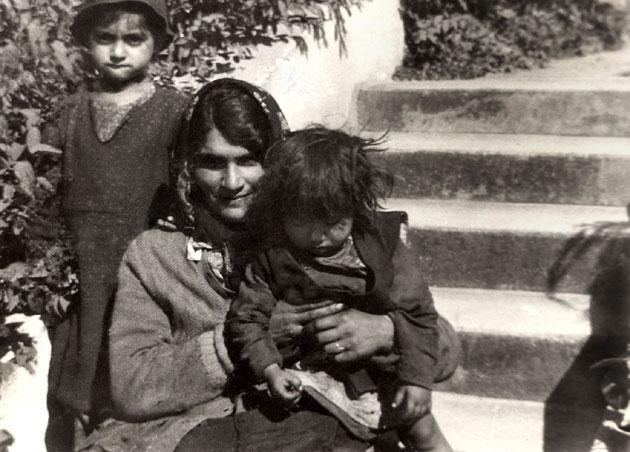Mensur Haliti on the International Holocaust Remembrance Day: A Way Forward from “Never Again”

January 27 is International Holocaust Remembrance Day
Today, humanity will pay tribute to the millions of people who were murdered in Europe under the Nazi regime.
Commemorations are necessary to understand the demons of human nature and to make us realize what we are “capable of”, and how “good people” can sometimes contribute to mass murders, surrendering their morals to the group in power.
For Roma specifically, commemorations are necessary to remind the wider public of the Roma Holocaust. Too often, the extermination of the Roma population during the Second World War is left out of school curricula and historiography of the Nazi genocide.
But it is not enough to be present at commemorations and to deliver speeches. We, Roma, need to ask ourselves the critical question: how can we prevent history from repeating itself in relations to Roma?
Governments use commemorations to show empathy for the dead, but forget about the living. Since the Convention on the Prevention and Punishment of the Crime of Genocide was adopted by the United Nations in 1948, Roma property, employment, constitutional and human rights have not been protected or respected within European societies. For one day of commemoration, there are 364 days of humiliation, mistreatment, violence and killings against Roma across Europe. For the building of a memorial, there are thousands of destructions of Roma homes in European countries.
We must make the link between past events and today’s situation: anti-Roma violence is being legitimized through extreme right parties – Jobbik in Hungary, Ataka in Bulgaria – that have been democratically elected.
Which countries have recognized the Roma Holocaust so far? Hungary, Poland, Slovakia and Ukraine.
Should we accept that countries like Hungary and Slovakia adorn their reputation with progressive statements at the international level, when they practice school segregation of Roma children and forced sterilization of Roma women at home? Should we accept that the German government hosts dozens of commemorations for the Holocaust, when they are sending tens of thousands of Roma to Kosovo, where they will face discrimination and threats without being able to seek police protection?
These are only very few examples to illustrate how history is repeating itself in relation to Roma, and how Holocaust remembrance and education alone have limits. A study conducted by the German Federal Unit on anti-discrimination revealed that while the majority of Germans knows about the Roma Holocaust, one in three Germans believes that Germany bears no special responsibility towards the extermination of Sinti and Roma by the Nazis and their allies during the Second World War…
What is to be done?
We must face the brutal fact that our memory is being used against us. We should not get tricked into this role. Recognizing the Roma Holocaust has to be linked to actual progress for the Roma. We will not stop national governments to use our memory for their own purposes.
But, we in turn need to demonstrate collective agency and to transform the memory of our people into actual change for our community.
We need to have a critical approach to the Holocaust. We should help public institutions question their conceptions of progress, and measure how far or close they arrived since the Convention on the Prevention and Punishment of the Crime of Genocide was adopted.
We must challenge their dual commitments for democratic ideals and non-democratic practices and their perverse aspirations to introduce and retain inclusive economic and political institutions, policies, and practices.
We have to check what progress we are making in the recognition of the Roma Holocaust.
Last year, for instance, the European Parliament issued a resolution calling for the recognition of August 2nd as the international Roma Holocaust day. This is something we need to do for the European public, and for the Roma, who deserve to know about their history to better understand their currents and inform their future.
We have to change the narrative on the Roma genocide: if we are still here to witness, it is because we have been resisting, before, during and after holocaust. This is largely occulted in traditional historiography, where Roma are presented as victims.
Who remembers that on May 16 1944, imprisoned Roma fought back against the Nazis in the camp of Auschwitz Birkenau? After centuries of oppression, violence, slavery and mass extermination, we are still here, the most resilient and creative minority in Europe.
Finally, to succeed together, especially as we have never been independent citizens of our sovereign state, we have to fight uncompromisingly for our independent “state of mind”.
We must see ourselves as a distinct and powerful culture, instead of a temporary, inferior subculture that depends on others. We have to embrace and reinforce our uniqueness, our proud past and our right to develop an independent system of beliefs that addresses our distinct needs and desires.
We should have the memory of the Holocaust present in our minds at every breathing moment of our lives. The memory of the Holocaust should shape how we see ourselves in society, who or what is our enemy, who are our friends, with whom we are willing to form coalitions, how we vote, and how we lead our lives in the future.
If we don’t reclaim our memory to improve our lives, we will again fall preys of opportunistic and irresponsible politicians who use our memory to raise their profile at the international level, while leaving our people to the humiliation and the violence of the majority at home.
Mensur
Haliti is senior program manager at the Open Society Roma Initiatives
Office, focusing on civic and political leadership development.